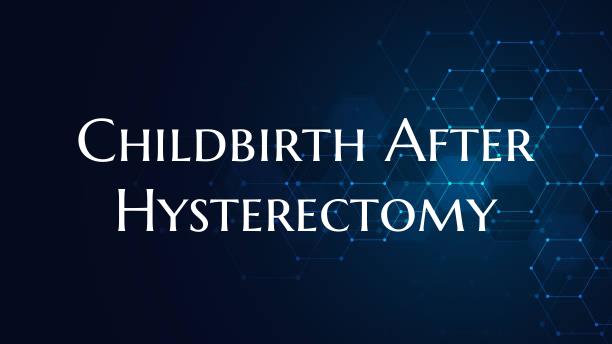
Childbirth After Hysterectomy
Introduction: Childbirth after hysterectomy is a medical marvel that occurs rarely. A hysterectomy involves the removal of a woman's uterus, making conception and pregnancy impossible. However, there have been cases where women have become pregnant and successfully carried a baby to term even after having undergone a hysterectomy. This phenomenon raises several questions and considerations regarding the possibilities and implications of childbirth after hysterectomy.
Possibilities of Childbirth After Hysterectomy: 1. Pregnancy through IVF: In some cases, women who have undergone a hysterectomy but still have their ovaries can opt for in vitro fertilization (IVF) using a surrogate or gestational carrier. The fertilized embryo can then be transferred to the carrier's uterus for pregnancy. 2. Uterus transplantation: Uterus transplantation is a groundbreaking procedure that allows women without a uterus, including those who have had a hysterectomy, to carry a pregnancy. With advancements in medical technology, uterus transplantation offers hope for women to experience pregnancy post-hysterectomy.
3. Ectopic pregnancy: In rare instances, women who have had a hysterectomy may experience an ectopic pregnancy, where the fertilized egg implants outside the uterus, often in the fallopian tubes. While this is a high-risk scenario, early detection and medical intervention are crucial in managing ectopic pregnancies.
Considerations for Childbirth After Hysterectomy: 1. Medical risks: Pregnancy after hysterectomy carries significant medical risks, including complications related to the previous surgery, potential organ damage, and the overall health of the woman and the developing fetus. Close monitoring by healthcare providers is essential to ensure a safe pregnancy and delivery.
2. Emotional implications: The prospect of conceiving after a hysterectomy can evoke complex emotions for women and their partners. It is important to address any emotional concerns and seek support from healthcare professionals, counselors, and support groups throughout the pregnancy journey.
3. Family planning decisions: Women considering childbirth after hysterectomy should carefully weigh the risks and benefits, as well as their personal and family circumstances. Discussions with a healthcare team, fertility specialists, and mental health professionals can help in making informed decisions about future family planning options.
Conclusion: Childbirth after hysterectomy is a remarkable occurrence that challenges traditional notions of reproduction and fertility. While it is a rare and complex phenomenon, advancements in assisted reproductive technologies and surgical procedures offer new pathways for women who desire to experience pregnancy post-hysterectomy. Understanding the possibilities, considerations, and implications of childbirth after hysterectomy is crucial for individuals contemplating this unique reproductive journey.